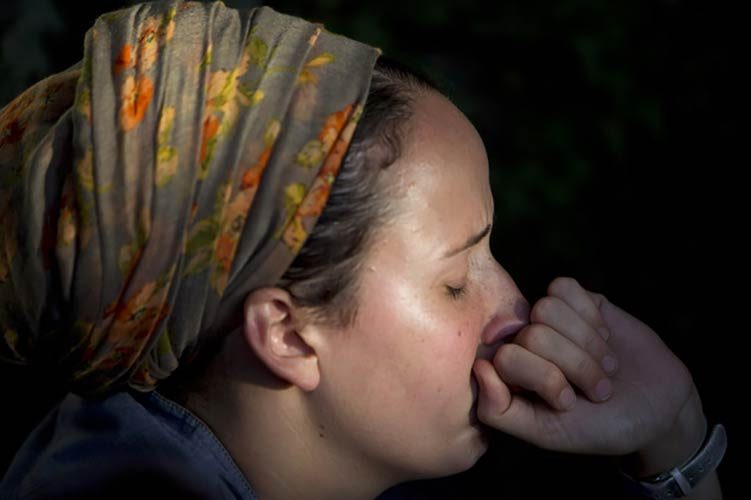On Tisha B’Av, we read Lamentations, one of the most difficult books in the biblical canon. I once read that the opening of the Book of Lamentations (Eicha in Hebrew) is pronounced with a catch of the throat to convey the breath-stopping shock in the face of the destruction it describes.
One might argue that the lasting impact of the destruction of Jerusalem and its Temple in 586 B.C.E. reaches us all they way to the 21st century, as our generation is still engaged in a fight over Israel’s right to exist as a Jewish state with Jerusalem as its capital. But when I read the book, I am not thinking about politics or history. I feel the wounds of the present, absorbed in the intricate details of pain.
Biblical scholar Kathleen O’Connor describes Lamentations as a powerful work of ancient poetry that tells the truth about what it takes to survive trauma and “testifies to the human requirement to speak the unspeakable, to find speech in traumatized numbness.”
One of the most distressing experiences for trauma survivors is that there is an inner conflict between needing to release their angst and finding it difficult to articulate it. What we know from the study of the experience of Holocaust survivors is that many of them spent years in silence about their tragic inner world.

Rachel Yehuda, a scientist who researched the effects of post-traumatic stress disorder, asked Holocaust survivors why many of them didn’t seek psychological support for the flashbacks and nightmares from which they often suffered. The response she received was that they felt no one would understand.
Lamentations offers language that lifts the veil of silence and forces us to stare into the wreckage of the shattered heart. The book’s poet pokes at the indifference of our sheltered existence: “Is it nothing to you, all you that pass by?” (1:12); “They have heard that I sigh; there is none to comfort me” (1:21).
The book acts as a reflection of our own pain and brings solace to those who recognize their deepest fears in its words. Alan Mintz, a scholar on biblical poetry, calls Lamentations a “house of sorrow” where tears flow safely. For those readers who have experienced trauma, the book’s shifting voices become witness to the most senseless of human experiences, letting readers know they are not alone.
In my chaplaincy work with people confronting a crisis, I have heard the bewildered question “Why? Why me?” There is no answer, of course. Eicha begins with a similar question: “How?” “How lonely sits the city once great with people!” (1:1).
It is likened to a funeral dirge and is repeated throughout the book: “How has G-d covered the daughter of Zion with a cloud in his anger?” (2:1); “How has the gold become dim?” (4:1).
Laments are more than complaints and arguments. They are the demonstration of vulnerability and humility before G-d.
The grieving poetry of Lamentations is written in various alphabetical acrostic forms. Most of the chapters begin each stanza with an aleph, then bet and so on. The last chapter is not an alphabetic acrostic but has 22 lines that correspond to the number of letters in the Hebrew alphabet. It is as if the poet, whose life and everything around him were out of control, used the order provided by the acrostic to try to make order out of chaos. If the world was created through language, so it is also destroyed through language, from the first letter to the last.
These are not hysterical outbursts of a lost soul, but carefully composed containers for pain. The poet gave form to the formless, making sure it speaks of unspeakable truths without spilling over into the abyss.
The voice of the last chapter shifts to the communal “we” and describes the shared loss of land, famine, and streets without joy or music. As the city of Jerusalem is desolate, filled with prowling scavengers, the communal question addressed to G-d is “Why have you forgotten us and forsaken us for so long?” There is, of course, no answer.
Our tradition leaves room for the most difficult questions. In becoming witness to the pain of our ancestors, we begin to articulate our own pain and heal our own wounds. We cannot always make sense of human suffering, but we can be sure that we are not alone.
Originally published in Atlanta Jewish Times.